T-Shirt Fabric Guide: What Is the Best Fabric for T-Shirts?

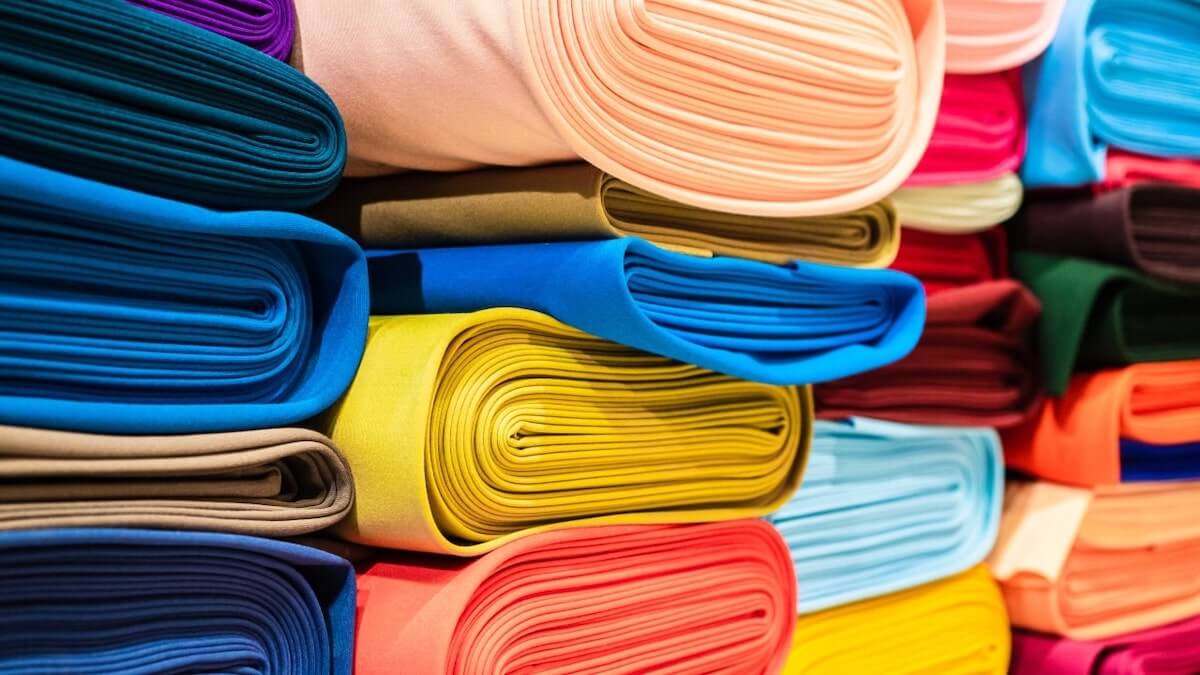
Picking the best fabric for shirts can be challenging. With many t-shirt fabric options ranging from natural fabrics like cotton, silk, and linen, to synthetic ones like polyester, nylon, and spandex, each has its own characteristics and blend combinations.
Our t-shirt fabric guide is here to help you bring order to an otherwise chaotic sea of different types of shirt materials and their uses.
We’ll go over the materials used in shirts, the different types of specialty t-shirt fabrics, and their advantages and disadvantages. Find the best fabric for t-shirts that suits your business!
Disclaimer: This post may contain affiliate links, which means we may earn a commission if you make a purchase through those links. This comes at no additional cost to you.
Key Takeaways
- Fabric types and their properties:
- Natural fibers such as cotton and linen offer breathability and comfort.
- Synthetic materials like polyester and spandex are known for their durability.
- Importance of blended fabrics:
Blended fabrics, like cotton-polyester or cotton spandex, combine natural and synthetic fibers to offer enhanced durability, stretch, and comfort.
- Factors influencing fabric choice:
When selecting t-shirt fabrics, consider the intended use, climate conditions, durability, desired lifespan, and comfort. For commercial production, consider the price of the materials.
- Fabric textures and weave:
Other factors that impact t-shirt fabrics include the weight of the yarn used, from lightweight to heavyweight t-shirts, as well as the fineness of the yarn count for fabric durability or comfort. Also consider the weave when selecting fabrics – cotton can be soft twill or even sturdy denim.
- Fabric print compatibility:
Cotton is typically the best material for vibrant and long-lasting prints, but polyester is also a good choice for certain dye sublimation techniques that can achieve vivid colors and designs.
How to Pick the Right T-Shirt Fabric?
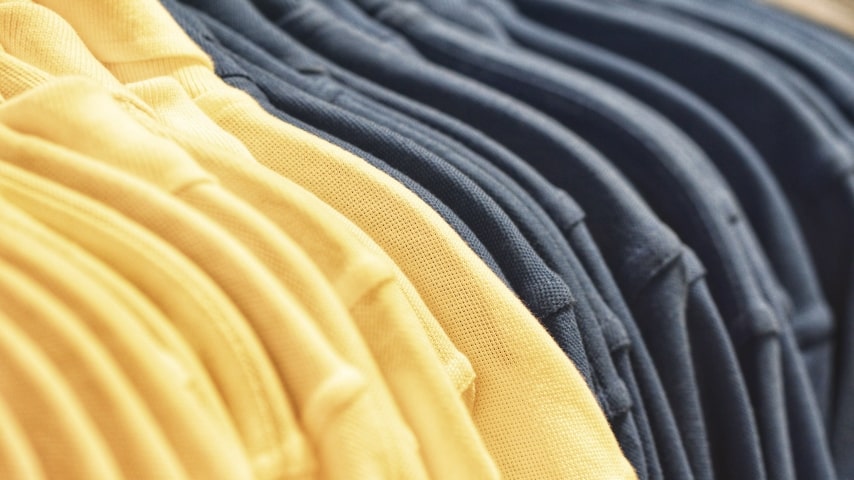
When choosing a t-shirt, the fabric plays a significant role in how it feels, how long it will last, and whether it has a good printing surface.
What are most shirts made of?
The most common fabric options are cotton and polyester or a mix of the two.
Cotton is natural, comfortable, soft, and stays cool in the summer. It’s great for hot weather, but some items made from cotton have little-to-no wrinkle resistance.
Whichever fabric you choose, consider the following:
- Weather. Pick the best material for shirts that ensure breathability in summer or warmth in winter.
- Comfort. Ensure that the garment appeals to your customers in use and maintenance.
- Durability. The garment should fit its intended purpose, whether athletic or casual.
- Cost. Research the financial and environmental costs of the products you sell or wear.
What are shirts made of beyond the fabric type?
Fabric weight:
Lightweight T-Shirts. Usually made of a very soft, drapey t-shirt material. They’re thinner, lighter, more flexible, and may also be transparent.
Medium-Weight T-Shirts. These are not as thin but are also made from a soft shirt material, depending on the fabric. This weight offers better protection and warmth but will take longer to dry.
Heavyweight T-Shirts. These can be soft, but some might feel coarse – it depends on the fabric. They’re perfect for durable workwear and are best suited for cooler weather.
Yarn count:
Yarn count defines the fineness of the thread. This information is usually found in the product details, where it may be displayed in several ways – 30/1, 30s, or 30 singles.
This characteristic can be called thread count or ply (how many yarns are twisted together).
Simply put, the higher the number, the finer the yarn – the fabric is softer, smoother, and lighter. If the yarn count is low, the fabric is generally weightier, thicker, and can feel coarser.
Polyester
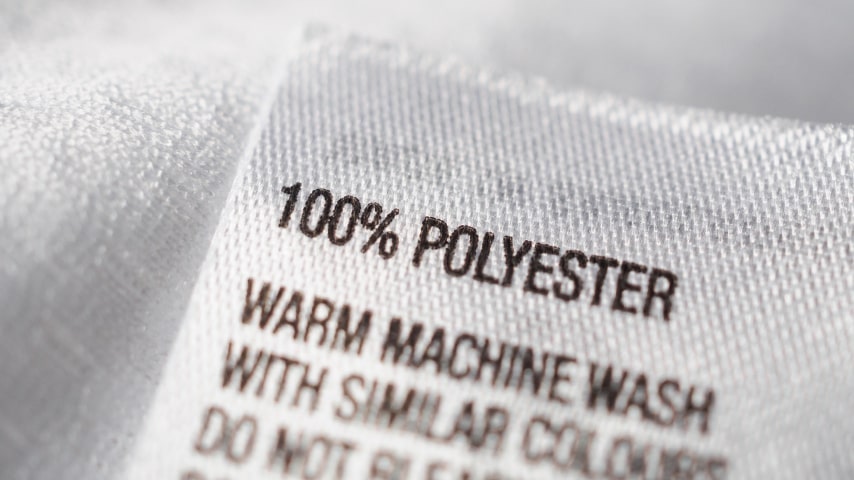
Polyester is a petroleum-based synthetic material, and polyester t-shirts are the most popular and versatile synthetic fabric garments. Here are some of its characteristics:
- Lightweight
- Extremely durable
- Moisture-wicking
- Easy to care for
- Wrinkle-resistant
Pros and Cons of Polyester
There are many advantages. Polyester is a durable fabric that can withstand stretching, creasing, and activity – an affordable material that’s a good choice for custom t-shirts and athletic apparel. Polyester fabric dries quickly, doesn’t need careful washing, and holds printed designs very well.
Polyester also has some downsides. Fabric texture can vary, from feeling like cotton to being quite coarse. Polyesters are typically non-biodegradable and might take 20 to 200 years to break down. Additionally, its manufacture produces chemical waste if not adequately negated.
Here are some of our customizable polyester items:
Join Printify and start your own business selling t-shirts with zero upfront costs and no order minimums. What’s more, our user-friendly Product Creator allows you to easily design and create products. Publish to a store and start selling while we take care of everything else – printing, inventory, and shipping.
Create Your Own Merchandise and Start Selling Today!
Cotton
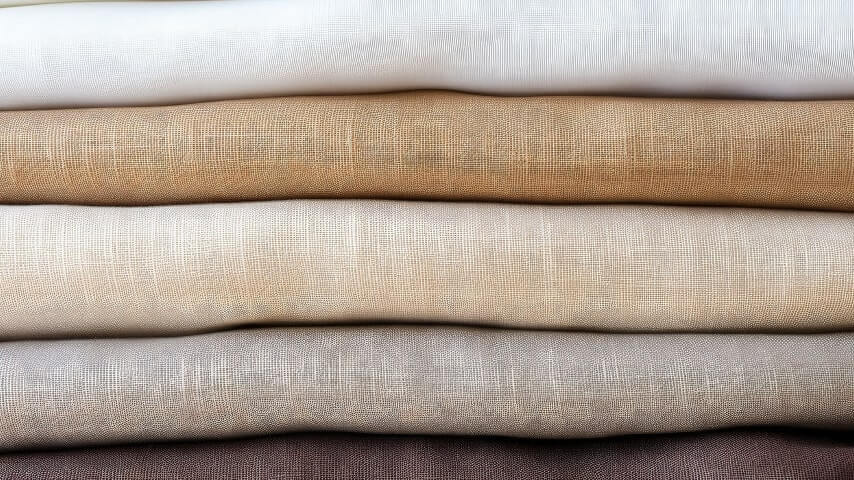
Cotton fabric is the most widely used natural fabric in the world. No fabric guide would be complete without a nice cotton shirt option. Often crowned the king of all fabrics, cotton is praised as the best material for t-shirts and other products we use daily.
These are some of its characteristics:
- Comfortable
- Durable
- Breathable
- Biodegradable
- Absorbent
In print-on-demand, cotton is often the best fabric for most products. The ink sets into the fibers well, providing a great canvas for high-resolution designs.
Types of Cotton
To help you choose the best cotton for t-shirts, let’s look at the different types commonly used. This information is often available on product details pages.
- Ring-Spun Cotton. While more expensive than regular cotton, it’s a bit softer, smoother, and more durable due to a tightly woven fabric and the spinning process.
- Combed and Ring-Spun Cotton. This cotton is even softer than ring-spun cotton because it’s been combed to remove impurities, giving a smoother surface for print.
- Organic Cotton. Grown without synthetic fertilizers makes this a costlier yet more ecological option. Eco-friendly cotton is soft, popular, and just as durable and smooth.
- Slub Cotton. A light and airy fabric makes high-quality cotton t-shirts that don’t cling to the body at a slightly higher cost. It has a great feel and doesn’t require much ironing.
- Pima Cotton. One of the finest varieties in the world, up there with Egyptian cotton. It’s smooth, soft, and durable. The material is resistant to tearing, wrinkling, and fading.
You may have also heard of pique cotton, sometimes called polo fabric. It’s often used for polo shirts due to its durability and texture, much like an Oxford cloth cotton t-shirt.
Pros and Cons of Cotton
Cotton shirts, whether twill fabric or basket weave, breathe well, absorb moisture, feel comfortable, and are biodegradable.
However, although it’s a durable t-shirt fabric, the natural fibers tend to wear down faster than synthetic polyester fibers. They may also shrink unless preshrunk.
Some of our customizable cotton t-shirts:
Linen
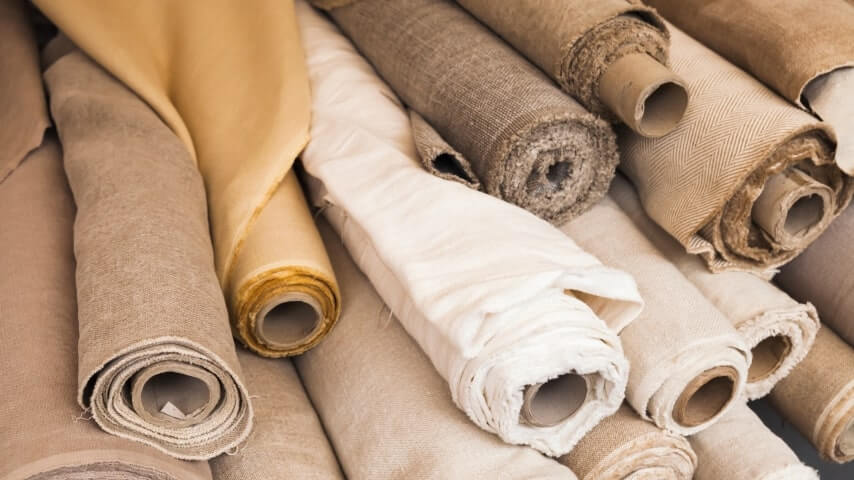
Linen is a natural fabric best suited for summer and formal wear, like traditional dress shirts in solid colors. It’s made from flax plant fibers with a textured tight weave.
These are some of its characteristics:
- Extremely durable
- Breathable
- Dries quickly
- Absorbent
Linen gets softer with every wash – there’s no need for fabric softeners.
Pros and Cons of Linen
Linen is the perfect choice for warm weather. It’s breathable, lightweight, and durable. It’s also highly resistant to rotting and bad odors while remaining organic and feeling good on the skin.
While linen has a lot of great properties, it’s not one of the most popular fabrics for t-shirts. Even a slight touch can cause wrinkles and folds, requiring a lot of upkeep.
Linen is also more expensive than cotton and is prone to shrinkage. Before washing linen clothing, check the recommendations on the fabric’s care label.
Make Your Own Custom Products Today!
T-Shirt Blends and Blend Ratios
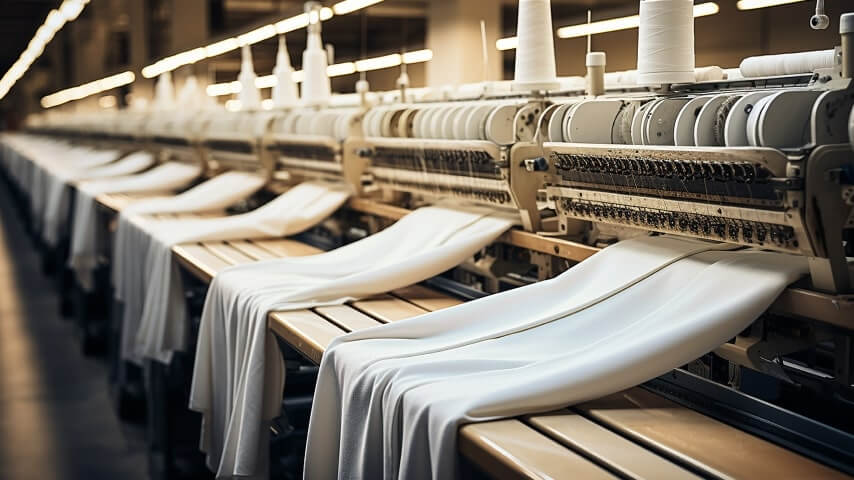
Although poly-blend originally referred to combining two or even three different fabrics of polyester materials, today, it’s commonly used to describe the creation of semi-synthetic fibers.
Through blending, the textile industry can produce fabrics that exhibit properties unachievable with either fiber alone. If you want your t-shirts to be durable, poly-blend is the way to go.
T-shirt blends are made to complement each other. Here are the most common:
- Cotton / Spandex Blend. More elastic and wrinkle-resistant than cotton alone.
- Rayon / Polyester Blend. Rayon wood pulp makes it much more comfortable.
- Cotton / Polyester or Spandex Blend. Stretchy, comfortable, and won’t wrinkle easily.
- Polyester / Viscose Blend. Strong and resistant to shrinking. Viscose adds softness.
Blending is a good way to improve the fabric’s performance, texture, and feel. What’s more, sometimes, it also reduces the cost. There’s no best t-shirt fabric blend; find what suits you most.
Most Common Blend Ratios
Blend ratios vary among producers. Let’s take a look at some of the most common:
- 80% Polyester / 20% Cotton Blend. One of the best fabrics for athletic wear – soft, versatile, and easy to care for in long-term use and multiple wash cycles.
- 52% Cotton / 48% Polyester Blend. Good for casual wear – comfortable, durable, lightweight, dries quickly, and is less likely to shrink than pure cotton.
- 90% Cotton / 10% Polyester Blend. Commonly used for t-shirts – soft, comfortable, and breathable but can be prone to shrinkage.
Other common blends include 75% polyester / 25% cotton, 65% polyester / 35% cotton, 65% cotton / 35% polyester, 50% / 50%, and so on.
Here are some of our customizable t-shirts made from double blends. Keep in mind that fiber content may vary for different colors:
When it comes to tri-blend fabric, manufacturers combine polyester, cotton, and rayon. The final result is one of the softest t-shirt material options available – adding a light and silky drape.
If you want your designs to stand out, tri-blend is one of the best shirt materials. Here are some of our customizable items from tri-blend fabric:
Different fabrics woven together offer the best of both worlds and are popular due to their affordability and the healthy balance they strike between breathability, durability, and comfort.
FAQ
What is the best fabric for t-shirts?
Cotton is widely considered the best fabric for everyday t-shirts thanks to its softness, breathability, and ability to absorb moisture. However, there’s no best fabric for every occasion – others can be more durable, better textured, or cheaper.
What t-shirt material is the most durable?
Polyester stands out for its durability. It’s resistant to shrinking and stretching, maintains its shape well, and is quick-drying, making it ideal for athletic wear and repeated washes.
What material is the most comfortable for t-shirts?
Pima cotton is known for being extremely soft and comfortable. It features long fiber strands that enhance its softness, durability, and resistance to pilling, making it a premium comfort choice.
How do I choose a t-shirt fabric?
Selecting shirt fabrics depends on your or your customers’ needs:
- For everyday comfort and a natural feel, choose cotton.
- For durability and moisture-wicking properties, go for polyester.
- For a balance of comfort and easy maintenance, consider a cotton-polyester blend.
- For something a bit different, try linen, spandex, rayon blends, or even tri-blends.
Consider factors like the climate, intended activity level, and how you want the shirt used.
What is the best material for t-shirt printing?
100% cotton is often preferred for printing because it holds color well, resulting in vibrant and long-lasting prints. Polyester is also a good choice for certain prints, especially sublimation, where colors and designs can be exceptionally vivid and durable.
How do fabric choices affect the overall cost of producing t-shirts, particularly in bulk orders?
Higher-quality fabrics like organic cotton tend to be more expensive, while poly-blends like polyester with cotton can balance quality and cost-effectiveness, especially in bulk orders.
What are the specific care instructions for each type of fabric mentioned to maintain their quality and longevity?
Specific care instructions vary by fabric type. Cotton requires gentle washing to prevent shrinkage, while synthetic fabrics like polyester might need low heat settings for drying to maintain their shape and avoid melting or warping.
Can you mix any of the fabrics mentioned for custom fabric blends, and if so, what are the benefits or drawbacks?
Mixing fabrics for custom blends can enhance certain qualities, like durability, stretch, or breathability. However, it’s crucial to understand how different fibers interact, as some combinations may lead to issues like uneven shrinking or loss of texture over time.
In Conclusion
The world of fabrics is vibrant and brimming with options. As technology advances, so do the composition and production methods of shirts.
T-shirts are the bread and butter for many sellers. If you do your research, you can impress your customers with custom merch that’s comfortable, durable, and looks amazing.
Choose the best t-shirts for your online store, create high-quality product images, or search for relevant t-shirt mockups. Create the perfect listings and start selling.
What are t-shirts made of? Which fabric do you prefer? Keep experimenting and find out!
Make It Happen Today!
Keep Exploring Our Blog
Written by

Leon Walker
Share the article
Topics
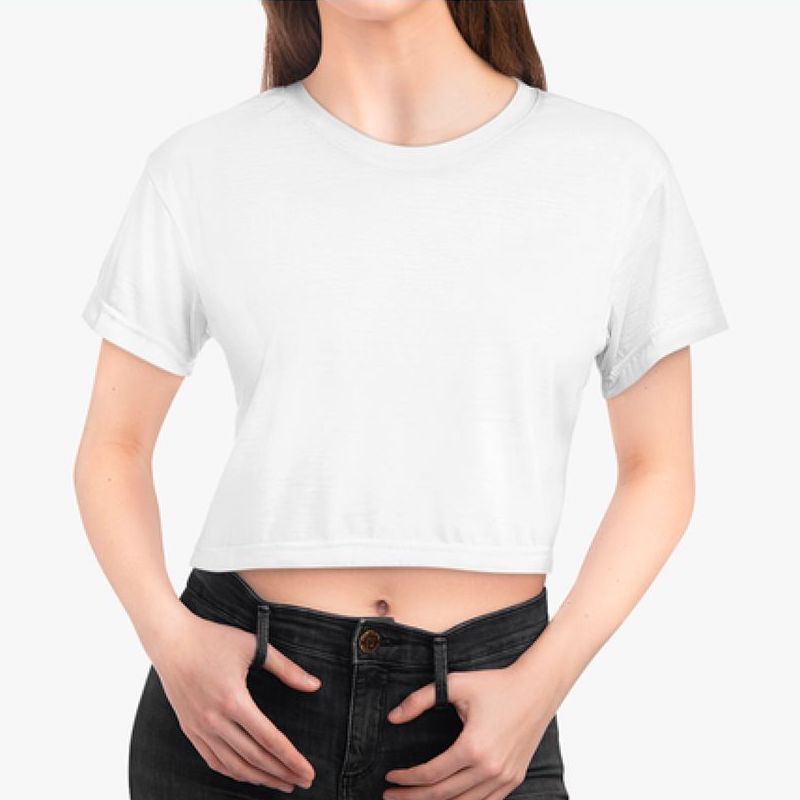
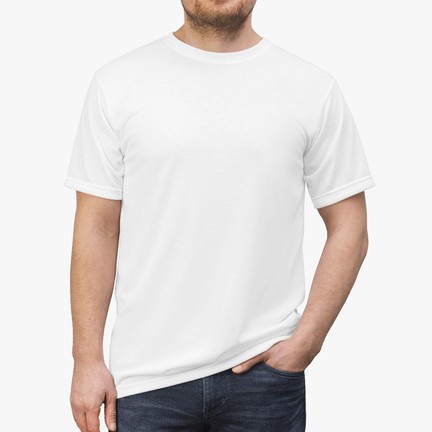
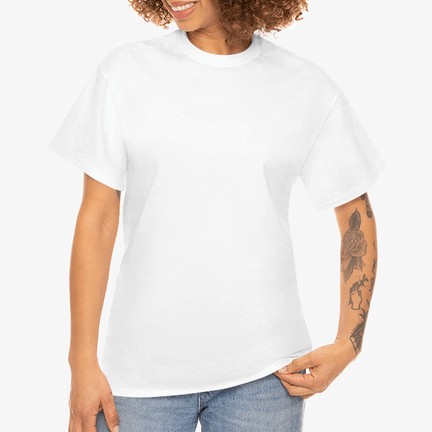
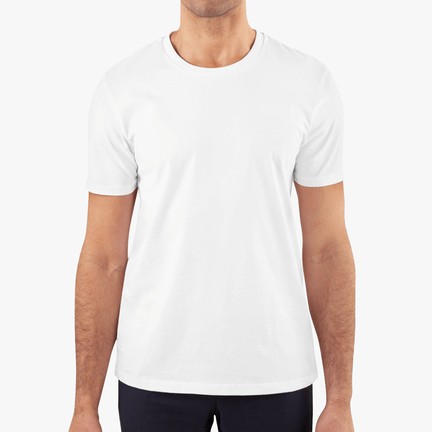
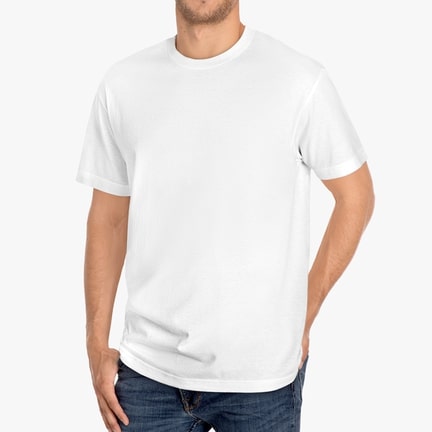
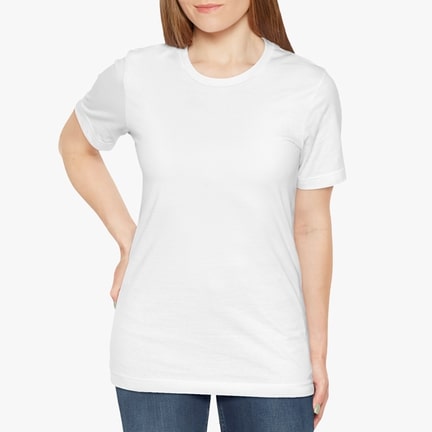
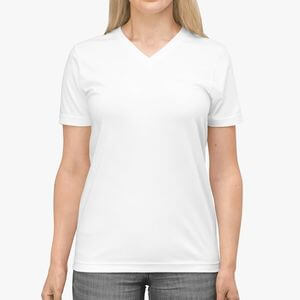
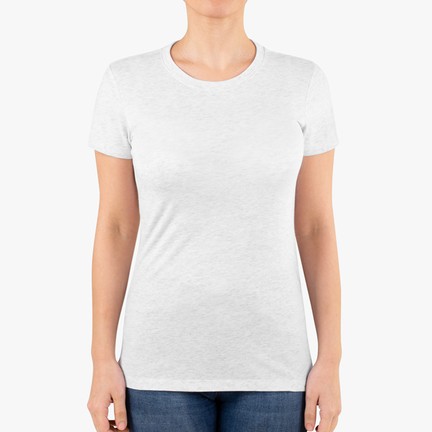
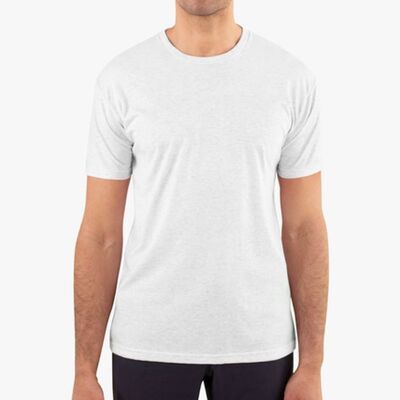

2 comments
I liked your writing in website. Would like to see more like this.
Hi there,
Thank you, we are glad to hear you liked this article.